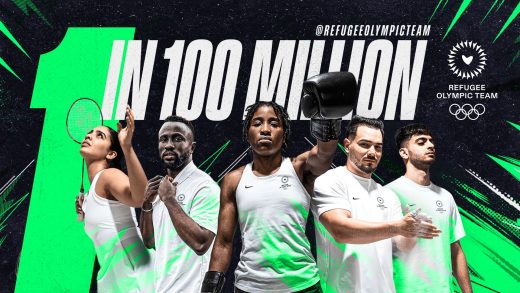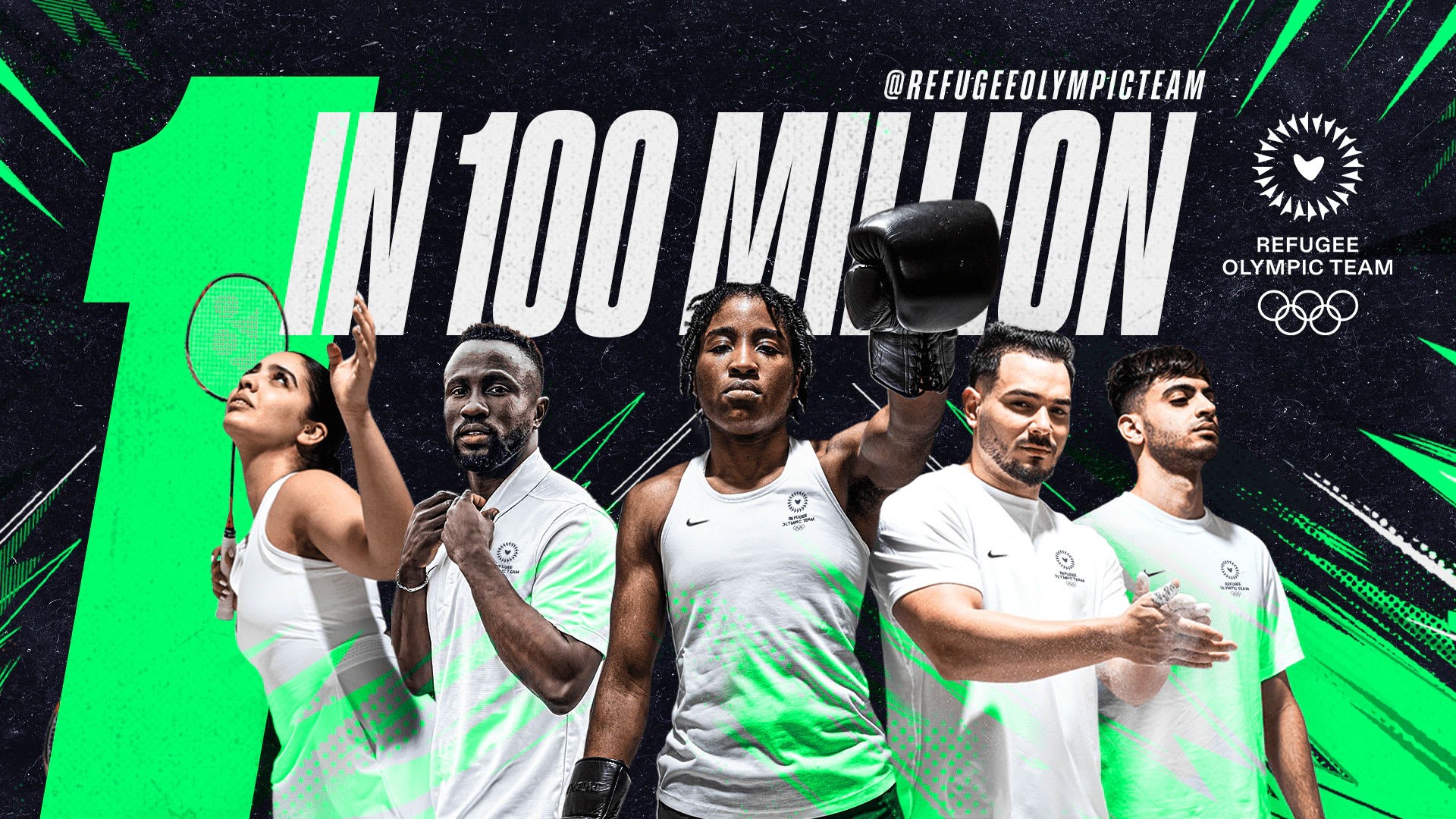How these Olympians succeeded against all odds
How these Olympians succeeded against all odds
Watch and support the Refugee Olympic Team athletes representing more than 100 million who are displaced globally.
BY Mark Eaves
As an athlete, what are the odds of making it to the Olympics?
The National Collegiate Athletic Association (NCAA) calculates that less than 2% of its half million athletes will make it to professional status, and that’s not even Olympic level.
“The odds are always bad,” said multi-time USA Olympian hurdler Lolo Jones in a recent interview. In June, Jones attempted to qualify for her fourth Olympic Games, in Paris (note, just before publication the team was announced. She did not make the team). “Even in my prime, the odds to be an Olympic athlete, even in your healthy peak, it’s 1%. If you don’t know how to overcome odds, you are not destined to be an Olympian.”
Against all odds
If you want to represent your nation as an Olympian, going against the odds is table stakes.
But what if your country is struck by war, famine, or natural disaster, or gripped by political turmoil?
Imagine this: you’re an aspiring teenage Syrian athlete—a swimmer—whose house is destroyed in the civil war. Along with your sister, you flee through North Africa into Turkey and find yourself smuggled into Greece by boat. The boat falters, takes on water, and you, your sister, and others have to swim for 3 hours just to reach land. Following that you travel by foot through Europe to finally find refuge in Germany.
What are your odds of realizing your Olympic dreams now?
At the Rio Games 2016, the International Olympic Committee established the Refugee Olympic Team—a scholarship program allowing selected displaced athletes the opportunity to compete under the Olympic flag.
It was here that the actual Syrian swimmer you just imagined, Yusra Mardini, successfully competed as one of 11,237 athletes, representing a global community of 62.5 million displaced people. Her remarkable story inspired the world, while her memoir, Butterfly, inspired Hollywood’s adaptation, The Swimmers, an award-winning Netflix movie dramatizing her journey.
Fast forward to 2024 and, as the refugee crisis grows, the global community of displaced people is spiraling upwards. When the Paris Games begin this summer, the United Nations High Commissioner for Refugees (UNHCR) reports that there will be over 100 million displaced people globally. That is more than the entire population of Germany.
The Refugee Olympic Team
It is against this backdrop that we worked in partnership with the International Olympic Committee to ensure that at the 2024 Paris Olympic Games, we shine a light on this global crisis, while celebrating the hope and inspiration embodied by the Refugee Olympic Team athletes. There will be 36 athletes, representing 12 sports, and each of them has travelled further and fought harder than anyone, just to get to the start line. They will have made it against all odds.
The “1 in 100 Million” campaign encapsulates this, and will mobilize global support for this years’ Refugee Olympic Team, encouraging fans to follow the athletes’ journey on social media.
For the first time ever, the team will have its own emblem and identity, the design featuring arrow waymarkers signifying the shared experience of their exceptional journeys, both physical and emotional.
We are calling on everyone to get behind this team that represents the more than 100 million displaced people on the world’s biggest sporting stage. Let’s make them the best supported team in the world. They deserve it.
As Yusra Mardini—now retired from competition and a presenter on Eurosport at this year’s Olympic Games—said of the 2024 team, “I hope the world will open their hearts and minds to them and hear their stories.”
Athletes like Cameroonian-born Cindy Gamba, the first ever female boxer to represent the Refugee Olympic Team and a serious medal contender, or weightlifter Ramiro Mora, who said of his selection: “I will be so proud stepping out wearing the Refugee Olympic Team emblem. To represent myself, my journey, but also the thousands of people who find themselves in similar circumstances as I did. I hope seeing us walk out at Paris 2024 will bring hope and inspiration to people everywhere.”
Sport has a unique power to unite the world, and this team can unite us more than ever, whatever the odds.
Mark Eaves is founder of Gravity Road.
ABOUT THE AUTHOR
(6)



